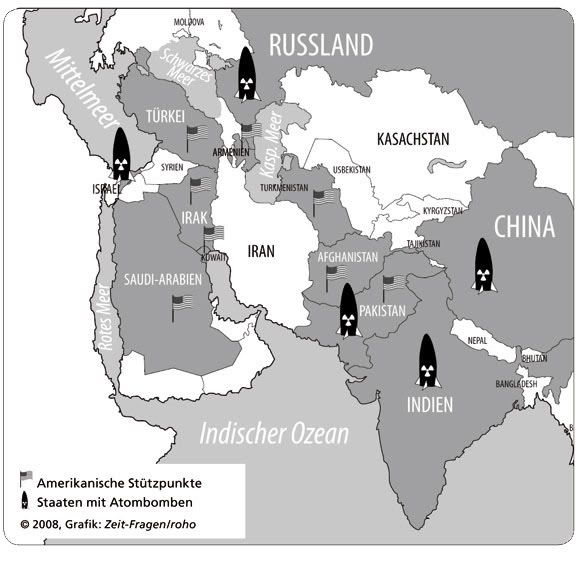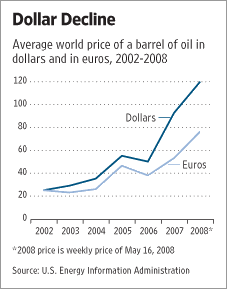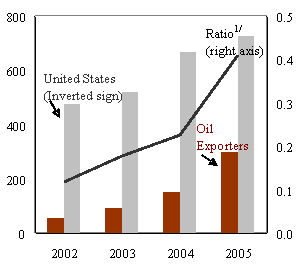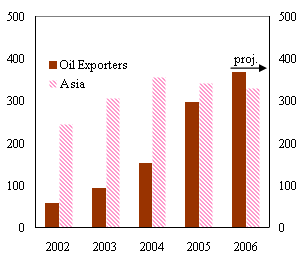A Region in Chaos:
An Interview with Dr. Mohssen Massarratby Deutsche Militärzeitung
Mohssen Massarrat, born in Tehran in 1942, is Professor of Political Economy and International Relations at Universität Osnabrück. Deutsche Militärzeitung: Professor Massarrat, William Fallon, US Commander responsible for the Middle East, unexpectedly resigned after just one year. A cause for his resignation is obviously the US policy toward Iran. Admiral Fallon criticized the US government by saying, "This constant drumbeat of conflict is one that strikes me as not helpful, not useful for the people," and stressed in contrast the importance of diplomacy. What does the resignation of such a high-ranking military officer mean?Dr. Mohssen Massarrat: Honestly, it's a very bad sign. Because, without actual bellicose intentions on the part of the United States, Fallon's resignation doesn't make sense.
Do you think a war against Iran is a realistic possibility?After the publication of
the consensus of all 16 US spy agencies in November last year which deprived the US government of any pretext for war, many -- including myself -- breathed a sigh of relief. Israel, however, immediately cast doubt on that report. US President George W. Bush and Vice President Dick Cheney lay low for several months, obviously counting on people's forgetfulness, and now the drums of war are loud again. As long as they determine the fate of the United States, a war against Iran cannot be ruled out. The same also goes for a John McCain presidency. A reasonable degree of foresight is necessary if we are to prevent -- if it is still possible at all -- the war. To the old US neo-conservative plans for regime change in Iran by means of war, more recently a domestic political reason has been added: i.e., Barack Obama.
Just imagine: Israel takes the planned summer launch of the first Iranian space satellite for a pretext and bombs, with the slogan of "Enough Is Enough," Iran's nuclear plants, rocket silos, and launching pads, at first on its own. The Iranian government reacts with counterstrikes. Then Bush and Cheney feel compelled to enter the war to protect its ally. Neo-conservatives would see their dream come true, and at the same time they would achieve the goal of preventing the victory of Barack Obama, who is seen to be against the war, in favor of McCain.
At the heart of the conflict are the controversial Iranian nuclear program and Iranian President Mahmoud Ahmadinejad's hostile remarks against Israel. In your opinion, do these two factors justify verbal and military escalation against Iran?Hardly. Rather, they seem to be used as pretexts for a new war in the Middle East. For example, the United States has accepted Pakistan's nuclear weapons, which already exist, although they represent a real danger to the region unlike the Iranian nuclear program. The real reason for the escalation against Iran is rather the desire of US neo-conservatives for a regime change in Tehran in order to remove a "troublemaker" from the region.
You mentioned Pakistan's nuclear weapons, which are at present still in the hands of US ally Pervez Musharraf. The country is plagued by domestic unrests. Is there a risk of the Pakistani nuclear weapons falling into the hands of less predictable rulers?One can never rule out such a possibility, since it is well known that there exist radical Islamic forces within the military apparatus of Pakistan.
In your view, does Iran present a threat to the Middle East and also to the so-called "Western world"?Iran is now the only remaining regional power that doesn't dance to the tune of the United States. The country opposes the hegemonic pretension of the United States, which wants to exercise complete control over mineral resources and all oil and gas transit routes. Together with other oil states, Iran would also be in a position to jeopardize the dollar as the currency of transaction. A danger to the US hegemonic interests, however, cannot be equated with a danger to the West! For example, having another hard currency like the euro besides the dollar would actually help stabilize the global economy -- even the weakened US economy. Because the US national economy remains afloat thanks to the dollar, the key currency, supported by the contributions of other national economies, it goes deeper into debt without a care in the world. Therefore it would be in the interests of the international community if the US national economy flourished through its own performance instead of endless debt and dollar devaluation.
What, in your opinion, are we to make of Iran's nuclear program?
Iran is a regional middle power and, in view of Israel's nuclear first-strike capacity, faces a very serious security dilemma. This problem has nothing to do with the present regime in Tehran. Any other Iranian government would also have to deal with this problem. For Iran, in principle there are only two possibilities: to develop its own nuclear retaliatory capacity; or to make the region a nuclear weapons-free zone. Of course, the latter would also have to encompass Israel's nuclear weapons. The Iranian government appears to have chosen the first option and be taking the same path that Israel has pursued, with impunity from the Nuclear Non-Proliferation Treaty, for almost forty years. Paradoxically, however, Iran today does not avow its security dilemma but proclaims purely civilian reasons for its nuclear program.
Why is that paradoxical?I believe that the Islamic Republic intends to ultimately acquire the skills to manufacture atomic bombs without, however, violating the NPT in the process. Camouflaging military intentions with peaceful use of atomic energy is in principle possible. The problem is, though, that it's impossible to convince anyone of the necessity for atomic energy in Iran. Iran has considerable fossil fuel resources and also has the possibility of meeting its growing energy need by implementing renewable energy technologies. It would therefore be difficult to dispel the suspicion that Iran is pursuing other goals with its nuclear program. The general public would be probably more sympathetic to Iran, and the debate could possibly rise to a completely different level, if Tehran were to make its case based on its security dilemma.
Would a military action against Tehran be similar to the previous attacks on Afghanistan and Iraq?A detailed plan for air strikes against Iran exists in Washington. It's a matter of preventing Iran from striking back. In the Pentagon circles, it is understood that already 2,000 targets to be destroyed in Iran have been selected.
Military targets?Not just military targets. The attacks are to destroy Iran not only as a regional military power but also as a functioning state. That encompasses the destruction of airports, roads, power plants, and sewage plants. So-called "collateral damage," the murder of civilians, is thus factored into such a plan, approved and accepted.
That sounds very similar to the US strategy in Iraq. Will the Iranian military break down just as rapidly as the Iraqi military did?I believe that the Iranian military would most probably be able to cause great difficulties for aggressors and subvert the Pentagon's plans. Then again, it is also very much possible that, after the first air strikes, the Iranian army would be obliged to devote itself to taking care of civilians. One imagines that the power plants, water reservoirs, and sewage plants of Tehran would be destroyed at the beginning of the air strikes. The army would then be hamstrung from crucial defense. That's precisely the reason why the possible attacks are aimed at civilian infrastructure.
After the invasion of the US armed forces into Baghdad, many Iraqis hailed America as their "liberator" from the regime of Saddam Hussein. Would there be such scenes in Tehran?That is inconceivable. An overwhelming majority of Iranians will support their government in the event of a military attack. Even critics of the government will do so if their country is attacked.
What makes you think so?Let me give you an example: when Saddam Hussein attacked Iran in 1980, the world thought that the Iranian army was demoralized because of the Islamic Revolution that had taken place two years before. Large sections of the army still consisted of hardened monarchists from the Shah's time and were actually opponents of the Islamic Republic. But the army stood united and succeeded in repelling the Iraqi attack, which was supported by the United States with substantial money and weapons. It would be probably no different with a coming Israeli-American attack.
What role does the Federal Republic of Germany play in the Iran conflict?Here, Germany unfortunately plays the role of a seemingly disinterested spectator. In reality, the German government supports, goes along with, and sometimes even schemes for the policy of the Bush administration, which is implementing ever sharper sanctions against Iran. It is very naive of Berlin. Actually, thinking people like German Foreign Minister Frank-Walter Steinmeier long ago realized that, for the United States, the Iranian nuclear program was a pretext for war just like the alleged weapons of mass destruction in Iraq.
What impacts would a war against Iran have on the region?The region would fall into a long period of destabilization. The central state would cease to exist in Iran, and the country would be "Afghanized" and "Iraqified."
From which do you think the United States would profit more: a stable or unstable region?Let's stick to the example of Iraq: its destabilization has benefited the US military-industrial complex and the oil and construction industries, which began to receive lucrative contracts as soon as the US invasion started. Many US neo-conservatives, such as Dick Cheney and US Secretary of State Condoleezza Rice, are closely involved in these sectors. Washington's criminal, irresponsible policy, however, is diametrically opposed to the long-term interests of the US population as well as the entire West. The costs of war directly weigh on not only a majority of the American people but, through dollar devaluation, also China, Japan, and the European Union that have dollar surpluses.
It should be obvious that this asymmetric arrangement in favor of US conglomerates, which are closely tied to Washington, cannot last long. But they think that, by destabilizing and decomposing the multi-ethnic state of Iran, they can secure the interests of the US military-industrial complex by the tried and true means of recycling petrodollars into weapons exports to Iran for years and decades to come.
What role does Israel play in this conflict?Israel is strategically seen as the most reliable bridgehead of the United States in this region. This is based on mutual dependence. For Israel, the United States is a vital ally, without whose constant military and financial assistance the country cannot survive. For the United States, Israel is more than a strategic bridgehead in the Middle East necessary for its hegemonic pretension that I have already mentioned. With a change of government, other US allies in the region can become enemies of the United States (as Iran for example did after the fall of the Shah's regime), but in Israel all conceivable governments will always be allied with the United States.
About 3,290 soldiers of the German Federal Armed Forces are currently stationed in Afghanistan. Would an Iran war affect their safety?Absolutely! I bet that the entire region would plunge into chaos. All countries allied with the United States, which have likewise stationed their troops in Afghanistan or Iraq, would then be confronted with a completely new situation, and there would be more losses of human lives -- including German lives!
In the West's media war against Iran, the human rights condition in Iran is constantly brought up for discussion, among other things with the newly coined term of "Islamofascism," the term eagerly embraced by the German media as well. What are we to think of that?That, in my judgment, is a shocking development as well as a symptom of the moral decline in the media. This term, which was evidently fabricated by US-Israeli think tanks, has -- as you correctly observe -- enjoyed wide currency in the German media. Even
Die Zeit,
Der Spiegel, and the
Frankfurter Allgemeine Zeitung have unfortunately promulgated this absurd catchword. This term is used to suggest that Islamic states are potentially fascist states.
What objectives is such a suggestion meant to achieve?It serves to appeal to anti-fascist "reflexes" in the Western democracies. Because against fascism all means are permitted, including military ones. The spearhead of this alleged new fascism is supposed to be Tehran. Many of those who propagate the term "Islamofascism" and try to make it acceptable advocate more or less openly for a "Final Solution of the Iran Question." The term "Final Solution," of course, is not mentioned explicitly, but it is still unmistakably there. It is ironic that such insinuations are also made by none other than Israel, though they do nothing less than minimize Nazism by comparing it with Iran. Thus the victims of the Holocaust are insulted in order to justify new crimes against Islamic countries. Especially in Iran, Jews have never come to harm because of their faith. For centuries Jews lived in peace in the Islamic societies of the East, but one cannot say the same for Europe.
In the future must we expect to see wars started with an ostensibly "anti-fascist" rhetoric?I would like to remind all that such a rhetoric was already used before the NATO attack on Yugoslavia in 1999. Above all, former German Foreign Minister Joschka Fischer and former Defense Minister Rudolf Scharping employed such parallels. That, too, is an indication of the rapid moral decline in politics and the media. Thus it is quite possible that's the model for the future.
However, we should not be too pessimistic either -- it is never too late to change anything! How may we go about it?By exerting ourselves, as much as possible, for truth and integrity in politics.
How credible is the human rights position of the United States, given Washington's close ties with feudal, anti-democratic Islamic monarchies, for instance, Saudi Arabia?I think this contradiction speak for itself. Surely one can criticize the development of democracy in Iran. Also regarding the human rights situation in Iran, one mustn't be silent. Compared with Saudi Arabia, though, Iran is a really democratic country. Also one should not ignore the development of the last two decades, in which reformists made great achievements. I see little reason for the dark picture of Iran painted in the West today.
How would you define the German interests in this region?It's, above all, an energy question here. The interests of Germany and Europe lie in the security of energy supply, which will probably consist mainly of fossil fuels for the next forty to fifty years. Why shouldn't there be a similar relation to what exists today between Europe and Russia -- on the basis of free trade and cooperation? For there to be such a relation, however, the European states -- above all Germany -- would have to develop self-confidence to extricate themselves from the hegemonic interests of the United States and to pursue their own independent policy, oriented toward fair trade and cooperation with the states in the Middle East.
Germany enjoyed a great reputation in the Islamic world in previous years. But, of course, the Federal Republic has lost much of its reputation, especially through its participation in the occupation of Afghanistan. Do you see any chance at all to repair this relationship?Let me take a concrete example: when former Federal Chancellor Gerhard Schröder clearly refused German participation in the war against Iraq, and former French President Jacques Chirac did the same, overnight both became the most credible Europeans in the entire Islamic world! A few weeks later, Chirac visited Algeria -- a country that still has problems with its former French colonial masters, actually -- and he was received and celebrated by almost a million jubilant people because of his stand against the Iraq War. See, it's never too late.
Do you see a possibility of a peaceful resolution to the Iran conflict?Yes. There is a quite realistic solution, though difficult to put into practice: a process to establish common security and cooperation in the Middle East, a kind of CSCE (Conference on Security and Co-operation in Europe) for the Middle East. It is difficult, because all those who, like the United States and Israel, are now pursuing their objectives with their "divide and conquer" policy, by dividing and weakening their adversaries -- for example dividing Hamas and the PLO in Palestine and fomenting mutual resentment among Sunnis and Shi'is -- will lose ultimately and therefore try to prevent it.
It is realistic, because all states of the region, including the population of Israel, would, in the medium and long terms, benefit from dialogue and gradual convergence on the concept of "common security" and economic cooperation. In all likelihood, in 1943, it was unimaginable that France and Germany would be so reconciled in ten years that wars between the states of the European Union would be ruled out and that in thirty years the European Union would develop into a flourishing economy in the interest of the EU populations.
Professor Massarrat, thank you for your discussion.
The original Deutsche Militärzeitung interview in German was republished in Zeit-Fragen on 2 June 2008 (see, also, Vicente Romano's Spanish translation at TLAXCALA). English translation by Yoshie Furuhashi.









